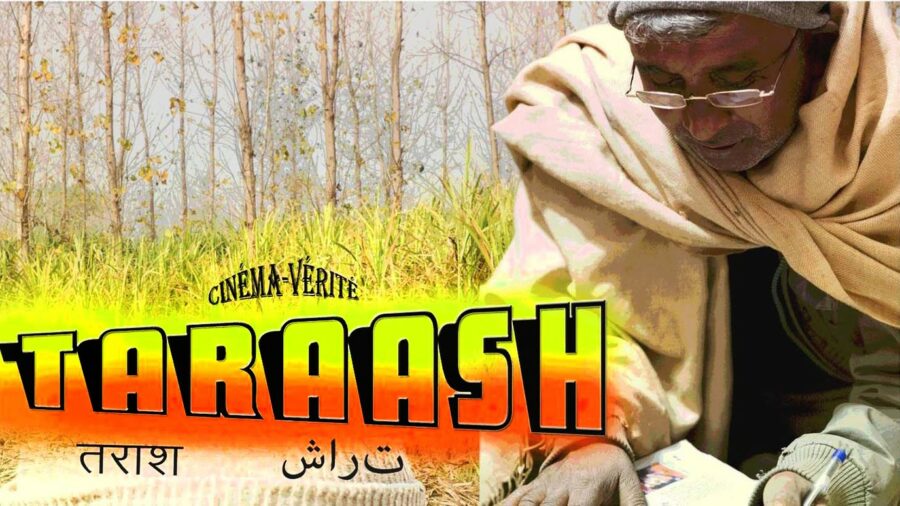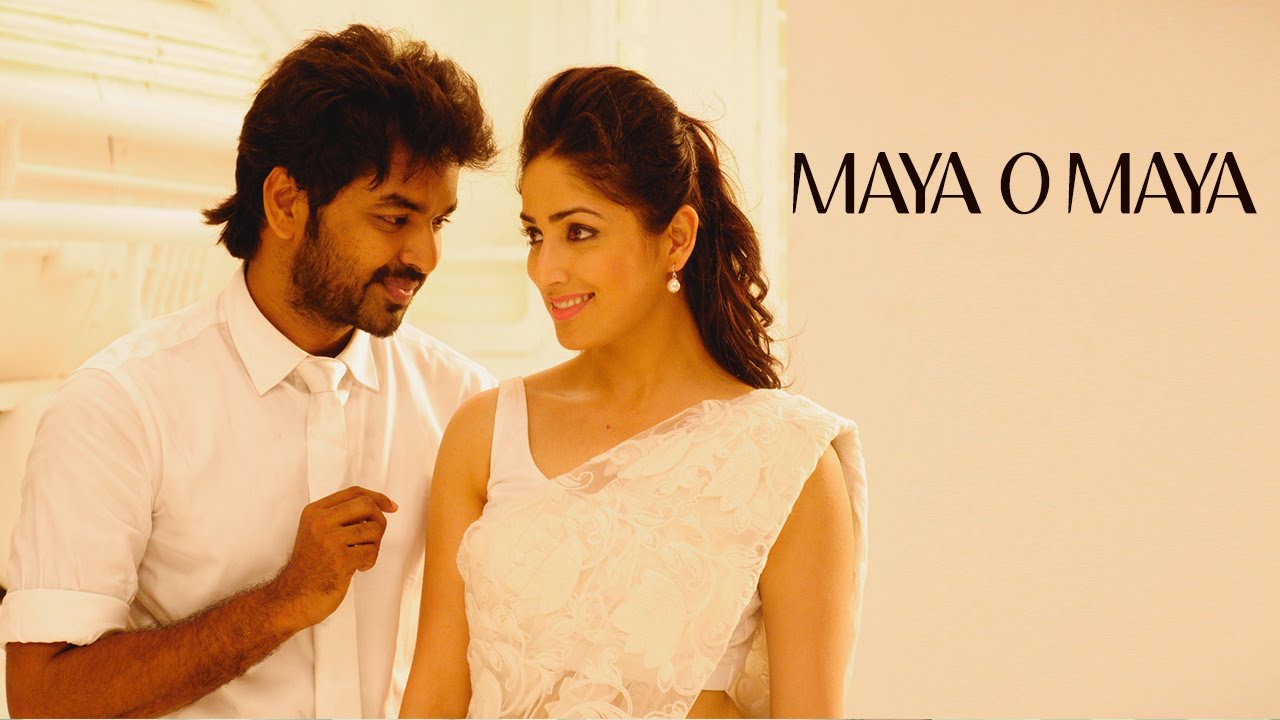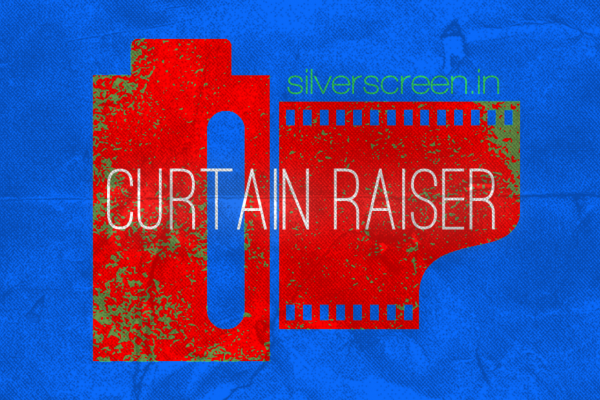“You’re overacting. Follow my instructions.” A director telling his actor to shun melodrama might seem commonplace, but Kunwar Pal Singh is a rather unusual filmmaker. In his fifties, the Dalit farmer in Raipur Sadat, a village in Bijnor district, is directing his first film, Maa. The 13-minute short about the pain of losing one’s mother becomes even more intriguing when you find out that is that it is nestled within a larger documentary, Taraash.
Kunwar had always wanted to be a Bollywood director and work with his muse Sridevi, but his modest means and familial responsibilities held him back. It however, didn’t stop the father of six kids from writing six feature-length scripts and many short stories. For decades, people found his passion amusing or downright crazy—even his wife hadn’t read his stories. In 2017, however, his wish finally materialised after a chance encounter with Ishan Siddiqui, then a 20-year-old media student at University of Leeds.
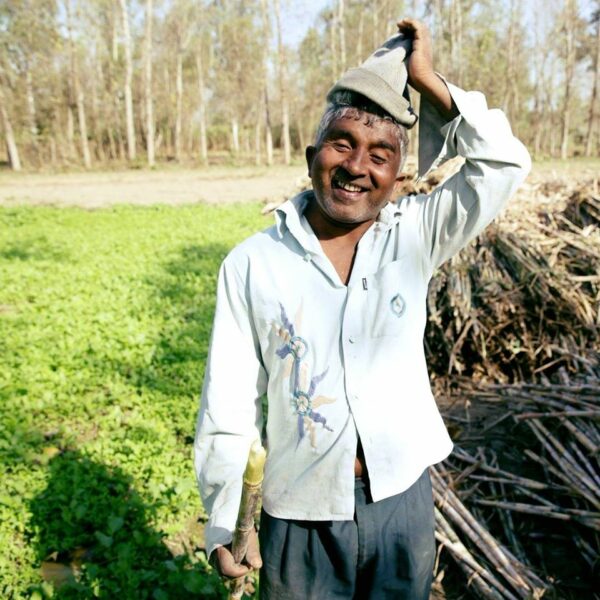
Taraash – Photo 3
“I was visiting my family in Nagina, my ancestral village,” says Ishan. “I heard about a man in the neighbouring village who wanted to meet me after he found out that I was studying film. As soon as we met, he asked me if I knew any big directors in Bollywood and said, ‘You just take me along, I’ll do the talking…they will love my scripts.’ His determination and confidence inspired me to explore his extraordinary story.”
Ishan helped Kunwar make Maa and chronicled the collaboration in his 20-minute film Taraash. “I polished his script and adapted it to a short film as Kunwar mainly writes feature-length scripts. I also shared my creative inputs on Maa. During the shoot, he would direct the actors and we would go through the rushes at the end of the day.” While the interviewees and actors in the film were largely locals, he cast three professional actors from Delhi as Maa’s protagonists. The result is a crisp metanarrative weaving fiction and non-fiction that revels in the art and effort of making a film.
While the crew for both films is the same, the visualisation is different—in Maa, the aspect ratio is wider, the colours starker and the background score more pervasive. Despite the different treatment of the ‘fictional’ and the ‘documentary’, Taraash suddenly intercuts between the two—the fictional mis-en-scene often gives way to the behind the scenes, with the crew, camera and a crowd of onlookers visible in the frame.
However, it is more than just a film of the ‘making of’ genre. Ishan not only shoots Kunwar shooting Maa, but also Kunwar and the people in the village watching Maa and their reaction to the movie. Jean Rouch pioneered this cinema vérité technique in Chronicle of a Summer (1961). More recently, in The Act of Killing (2012), director Joshua Oppenheimer asked some perpetrators of the 1965-66 anti-Communist massacres in Indonesia to recreate the murders on film and documented their reactions to the videos they shot.
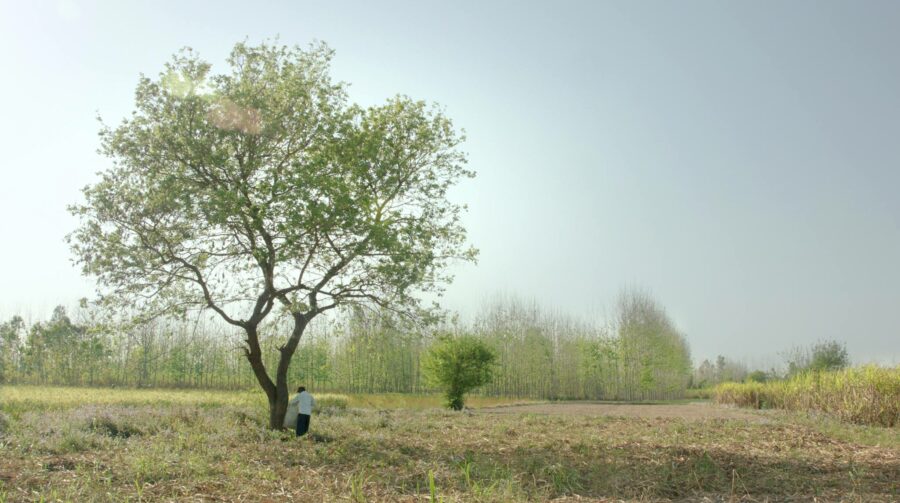
Taraash – Photo 2 –
Ishan acknowledges these directors’ influence: “They taught me the essence of non-fiction filmmaking through collaboration with subjects rather than intervention. I gravitate towards cinema vérité as I enjoy collaboration. As opposed to the ‘fly on the wall’ format [where the crew shoots subjects with minimum interference], I love getting into the thick of things. I also want actors and interviewees to contribute their ideas. For instance, while speaking to Kunwar about Maa, I realised the story was more personal than it initially seemed. I felt like he was using the film to express his feelings towards his mother. So, I wanted him to live his fantasy and share his truth the way he wanted. Sometimes, something as fake as fiction can bring out the true character of a person.”
Kunwar’s character is what makes the film exceptionally delightful. His earnestness and passion for storytelling suffuses every scene. Despite his age and financial constraints, he has a childlike playfulness. “I can write a story instantly. If you want, I can make one on your cameraman,” he declares to Ishan. “I will set it in London and Delhi…shall I show some romance here or there?” he adds with an impish smile.
Recommended
Kunwar is happy with his directorial venture, but he wants more. “If we extend this, it will look amazing,” he says as he watches Maa. Ishan too would have liked Taraash to be feature-length, but as a student film, there were many constraints. “As Raipur Sadat is a religious area [the Najaf-e-Hind dargah is nearby], it was difficult to get the permission to shoot and organise screenings. After the local police stopped us from filming, I, along with my cousins, went to the District Magistrate and Senior Superintendent of Police and sought their support,” says Ishan. “The core crew spoke only English, so the Indian crew had to help translate and liaise. Crowd control was also a challenge, but we had the support of village residents and my family members. They helped manage onlookers and avoid chaos.” Taraash was shot over two-and-a-half weeks and funded with a Kickstarter campaign that garnered slightly more than its goal of £4,000 with 66 backers.
Towards the end of the film, Kunwar says, “As long as I breathe, I will keep writing. This is my dream. One day, I will find a way.” As his passion lights up the screen, one can’t help but wonder how many more Kunwars must be cultivating films in their imaginations and screenplays in their tattered notebooks.
Taraash has been shortlisted for LongShots, BBC’s first online film festival.
